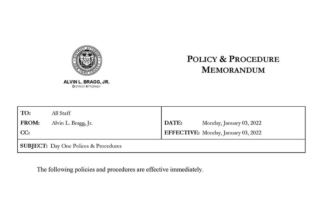Federal Bail System – Released on Conditions or Detained Pending Trial – Sean “P. Diddy” Combs
This topic is of particular relevance given the publicity surrounding the indictment, arrest and detention of Sean “P. Diddy” Combs in the Southern District of New York this week. Both at the Magistrate-Judge at the initial hearing, and the District Court Judge hearing the appeal the following day, held that no conditions of release could assure that [...]







